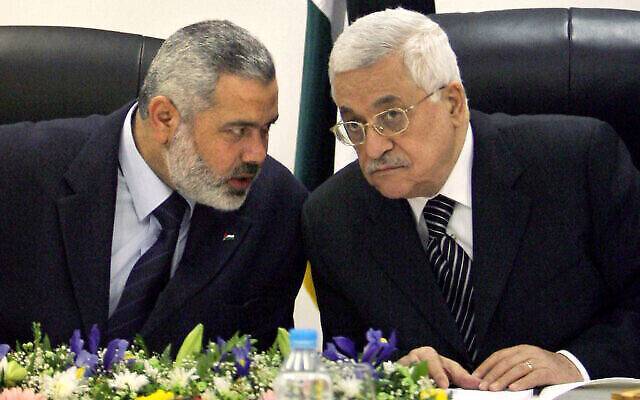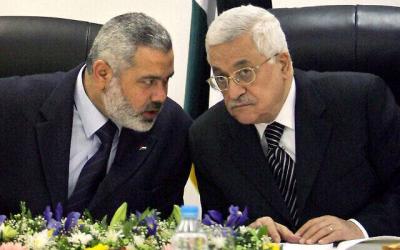If the Israeli war on Gaza cannot unite Palestinians, who will be able to do so? This question has become increasingly common as fighting between "Hamas" and the Israeli army approaches its ninth month without contributing to the reconciliation that would bring together the warring factions, primarily "Fatah" and "Hamas". In fact, the disputes between the two have reached the point of postponing a round of talks originally scheduled for mid-June in China indefinitely. "Fatah", which leads the Palestine Liberation Organization and governs the West Bank, was the one to request the postponement, according to sources from both its own movement and "Hamas" and another faction participating in the meetings. The official narrative from "Fatah" confirmed that "Fatah remains committed to sitting at the national dialogue table and is working to complete all preparations to provide suitable conditions for the success of the Chinese mediation." Officials linked the request for postponement to "the escalation of aggression and the complexities of events and developments expanding the war to the north, and the existential threat facing the authority in the West Bank."
While Fatah spokesperson Jamal Nazzal sticks to the official narrative, he reveals that there are other reasons behind the delay, particularly related to deep disagreements with "Hamas." Nazzal questions the feasibility of talks given "Hamas's" refusal to join the Palestine Liberation Organization, the existence of the Palestinian Authority in Gaza and the Rafah crossing, or even sharing governance with anyone, as well as its rejection of the establishment of a Palestinian state based on the 1967 borders. In contrast, the Secretary-General of the Palestinian People's Party and a member of the Palestine Liberation Organization, Bassem Al-Salhi, asserts that these points were agreed upon in previous rounds of talks. Al-Salhi stated that four points were already agreed upon:
Firstly: The Palestine Liberation Organization is the sole legitimate representative of the Palestinian people, and the dialogue among factions aims to expand the organization and enhance its representative status.
Secondly: A national unity government responsible for Gaza and the West Bank should be established, comprising qualified individuals.
Thirdly: The Palestinian state based on the 1967 borders and the right of return are the direct objectives of the struggle, with Palestinian forces starting their political program by recognizing international legitimacy and United Nations resolutions.
Fourthly: There is an agreement on the priority of a ceasefire in Gaza, the Israeli withdrawal from the sector, and the international community's commitment to rebuilding it.
Al-Salhi adds that "the remaining contentious issues are negotiable, and even if a solution is not immediate, discussions can continue on them." He points out that the disagreement is linked to "forms of struggle and resistance" and "mechanisms for implementing what has been agreed upon." However, Nazzal believes that "the implementation of the agreement is not a trivial detail, what good is it to reach an understanding if 'Hamas' does not commit to it?"
Nazzal accuses "Hamas" of blatantly shirking agreements, attributing the core issue to "lack of clarity, commitment, and resolution." He adds, "We follow their statements and see them sometimes agreeing to a Palestinian state based on the 1967 borders and joining the Palestine Liberation Organization, and sometimes rejecting it! We do not expect someone who has dedicated himself to preventing the implementation of this solution and accusing all its supporters of concession and treason to change his position abruptly."
Nazzal regrets the "common ground" between Israeli Prime Minister Benjamin Netanyahu and "Hamas" on "excluding" the Palestinian Authority from Gaza. He notes that the movement "could have taken shelter under the umbrella of the Palestine Liberation Organization, which has international legitimacy, removing the excuse from the occupation," but "it does not want partners in governance."
"Hamas" is seeking to reach an agreement with "Fatah" regarding a new technocratic administration for the West Bank and Gaza as part of a broader political agreement, highlighting the movement's goal of maintaining its influence once the war concludes. The United States and the European Union, which have long classified "Hamas" as a "terrorist organization," oppose any role for the movement in administering the Palestinian sector post-war. Western countries support the idea of the Palestinian Authority, once restructured under Mahmoud Abbas, managing Gaza after the war, but Netanyahu rejects this.
"Hamas" opposes Abbas's approach of seeking negotiations to establish a Palestinian state in the West Bank and Gaza with East Jerusalem as its capital, considering it a "failed approach," and calls for "jihad" or armed resistance against Israel. Nazzal warns of an "existential threat" facing the Palestinian Authority amid an "Israeli siege on it and the seizure of its financial resources," expressing his fear of the "destruction of the Authority by the end of this war."
Al-Salhi, for his part, sees that "the Authority in the West Bank has become devoid of political substance and lost its role after Israel's repudiation of agreements with it," and indicates that it is necessary to "bypass the Authority and its agreements and obligations, and that the day after the war should be for the establishment of a Palestinian state."




